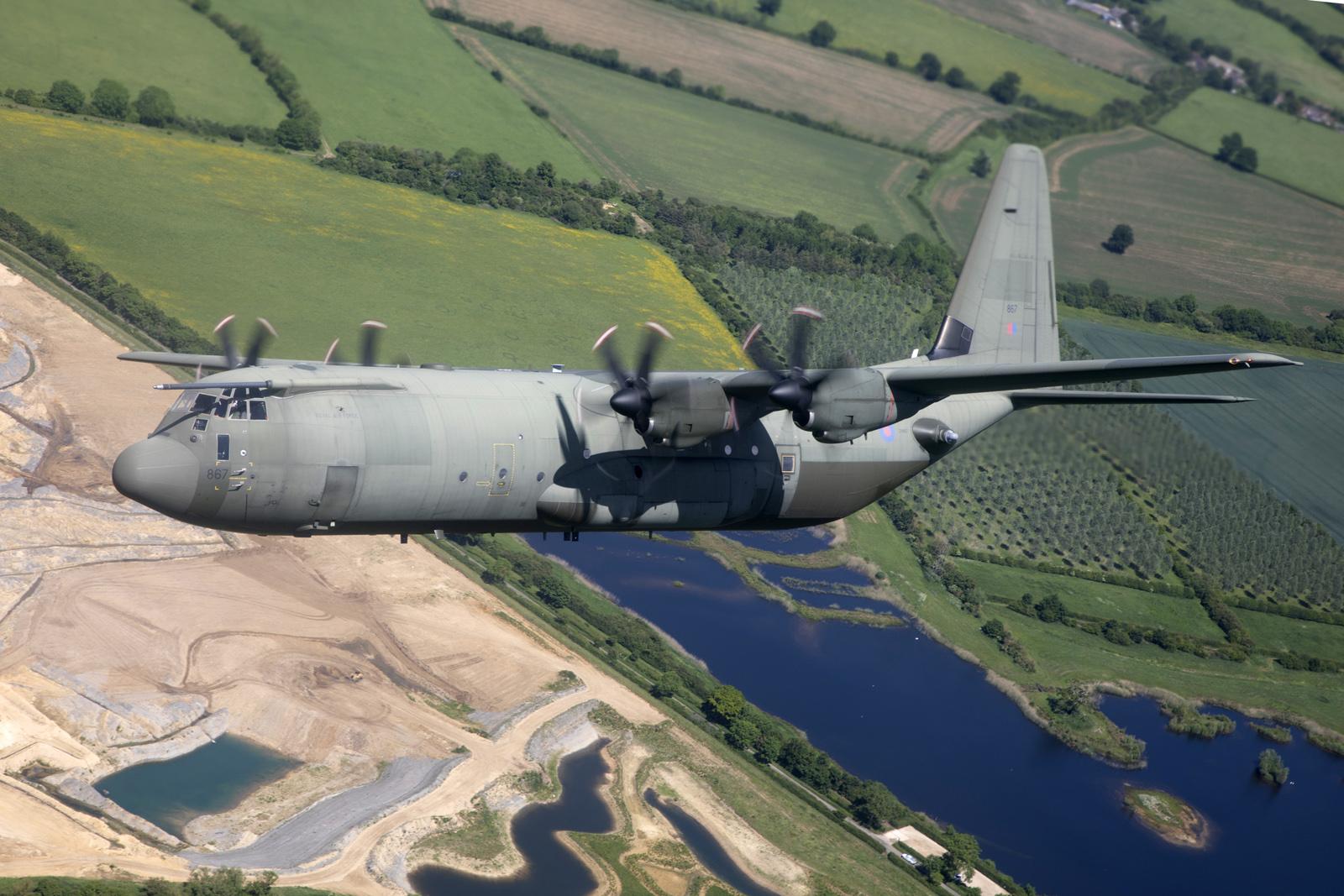
LONDON—The UK Royal Air Force (RAF) has aerially refueled both a C-130 Hercules and a Eurofighter Typhoon with near-50% blends of sustainable aviation fuel (SAF), as part of ongoing efforts to achieve net-zero emissions by 2040.
SAF was transferred to the C-130 and Typhoon during aerial refueling from an RAF Airbus A330 Voyager tanker. The aircraft had previously been used for flying trials with 100% SAF developed by AirBP, the air arm announced Jan. 12.
The fuel remaining from that trial, conducted in November [2022], was blended with standard aviation fuel, resulting in a blend made up of 46-48% SAF, the RAF estimated. Once recertified, the fuel was offloaded in flight to the receivers.
There was no detriment to performance on either the C-130 or the Typhoon, according to British defense officials.
Believed to be the first involving the aerial transfer of SAF at such a blend level, the trials represent a key milestone in the RAF’s push to make more use of sustainable fuels.
SAFs made from waste-based sustainable feedstocks, such as used cooking oil, reduce the aircraft’s carbon emissions by up to 80% compared to conventional jet fuel. Officials also said that the introduction of SAF would lessen the RAF’s reliance on global supply chains and fossil fuels, improving the air force’s operational resilience.
The RAF’s mixed fleet of aircraft and the range of environments they operate in will require different approaches to reducing carbon emissions. Multiple alternative fuel options will be required to meet the net-zero target.
The service has already been trialing several different sustainable fuels. Project Vermeer, in conjunction with UK-based C3 Biotechnologies, saw the flight of an uncrewed air vehicle powered by a synthetic aviation fuel produced through a carbon emission-free process.
Meanwhile, Project Martin developed a synthetic AvGas in conjunction with Zero Petroleum. The startup extracts hydrogen from water and captures carbon from the atmosphere to produce its fuel.
